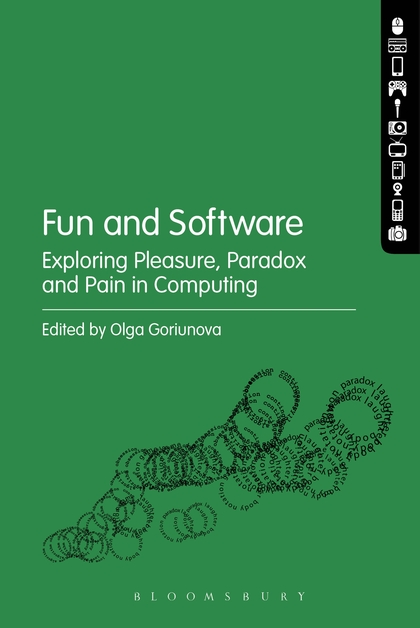Tony Harris: The Legacy of Cornelius Cardew (2013)
Filed under book | Tags: · avant-garde, biography, bourgeoisie, communism, composition, marxism, music, notation, politics

“Cornelius Cardew is an enigma. Depending on which sources one consults he is either an influential and iconic figure of British musical culture or a marginal curiosity, a footnote to a misguided musical phenomenon. He is both praised for his uncompromising commitment to world-changing politics, and mocked for being blindly caught up in a maelstrom of naïve political folly. His works are both widely lauded as landmark achievements of the British avant-garde and ridiculed as an archaic and irrelevant footnote to the established musical culture. Even the events of his death are shrouded in mystery and lack a sense of closure.
As long ago as 1967, Morton Feldman cited Cardew as an influential figure, central to the future of modern music-making. The extent to which Cardew has been a central figure and a force for new ideas in music forms the backbone to this book. Harris demonstrates that Cardew was an original thinker, a charismatic leader, an able facilitator, and a committed activist. He argues that Cardew exerted considerable influence on numerous individuals and groups, but also demonstrates how the composer’s significance has been variously underestimated, undermined and misrepresented.
Cardew’s diverse body of work and activity is here given coherence by its sharing in the values and principles that underpinned the composer’s world view. The apparently disparate and contradictory episodes of Cardew’s career are shown to be fused by a cohesive ‘Cardew aesthetic’ that permeates the man, his politics and his music.”
Publisher Ashgate, 2013
ISBN 140944810X, 9781409448105
228 pages
Reviews: Bruce Coates (Jems, 2013), Virginia Anderson (Music and Letters, 2013), Christopher Hobbs (NABMSA, 2013).
EPUB (updated on 2019-2-27)
Comment (0)Olga Goriunova (ed.): Fun and Software: Exploring Pleasure, Paradox and Pain in Computing (2014)
Filed under book | Tags: · abstraction, aesthetics, affect, algorithm, art, body, code, computing, game, humour, labour, logic, media, media theory, politics, programming, software, software art, software studies, theory, time

“Fun and Software offers the untold story of fun as constitutive of the culture and aesthetics of computing. Fun in computing is a mode of thinking, making and experiencing. It invokes and convolutes the question of rationalism and logical reason, addresses the sensibilities and experience of computation and attests to its creative drives. By exploring topics as diverse as the pleasure and pain of the programmer, geek wit, affects of play and coding as a bodily pursuit of the unique in recursive structures, Fun and Software helps construct a different point of entry to the understanding of software as culture. Fun is a form of production that touches on the foundations of formal logic and precise notation as well as rhetoric, exhibiting connections between computing and paradox, politics and aesthetics. From the formation of the discipline of programming as an outgrowth of pure mathematics to its manifestation in contemporary and contradictory forms such as gaming, data analysis and art, fun is a powerful force that continues to shape our life with software as it becomes the key mechanism of contemporary society.”
Texts by Andrew Goffey, Simon Yuill, Matthew Fuller, Luciana Parisi and M. Beatrice Fazi, Adrian Mackenzie, Michael Murtaugh, Geoff Cox and Alex McLean, Wendy Hui Kyong Chun and Andrew Lison, Christian Ulrik Andersen, Brigitte Kaltenbacher, Annet Dekker, and Olga Goriunova.
Publisher Bloomsbury, New York and London, 2014
New Media and Technology series
ISBN 1623560942, 9781623560942
285 pages
Software studies page on Monoskop
Comment (0)Jean-Luc Nancy: The Inoperative Community (1986–) [EN, ES, CR, RO]
Filed under book | Tags: · community, literature, love, myth, philosophy, politics, subjectivity, writing

“In this powerful work, Jean-Luc Nancy examines community as an idea that has dominated modern thought and traces its relation to concepts of experience, discourse, and the individual. Contrary to popular Western notions of community, Nancy shows that it is neither a project of fusion nor production. Rather, he argues, community can be defined through the political nature of its resistance against immanent power.”
Publisher Christian Bourgois, Paris, 1986
New edition, 2004
ISBN 22670008939
278 pages
English edition
Edited by Peter Connor
Translated by Peter Connor, Lisa Garbus, Michael Holland, and Simona Sawhney
Foreword by Christopher Fynsk
Publisher University of Minnesota Press, 1991
Theory and History of Literature series, 76
176 pages
Publisher (FR)
Publisher (EN)
WorldCat (FR)
WorldCat (EN)
The Inoperative Community (English, ed. Peter Connor, 1991)
La comunidad inoperante (Spanish, trans. Juan Manuel Garrido Wainer, 2000)
Dva ogleda. Razdjelovljena zajednica. O singularnom pluralnom bitku (Croatian, trans. Tomislav Medak, 2003)
Comunitatea absentă (Romanian, trans. Emilian Cioc, 2005, 69 MB)

